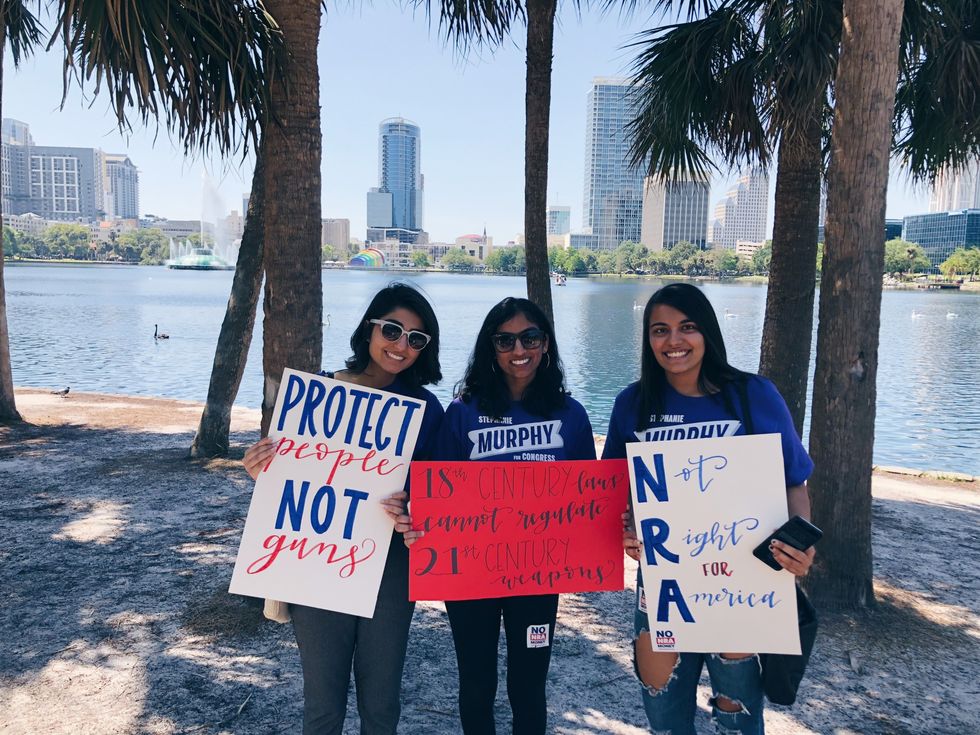In the wave of political polarization following the 2016 election, this idea of the President and federal government being these untouchable figures emerged among Trump supporters and self-proclaimed patriots, chastising protests and dissenters for being anti-patriotic. I, however, do not subscribe to the ideology that criticizing the institutions that govern you equates to a lack of patriotism; in fact, I believe it to be just the opposite.
Taking to the streets in act of protest is a blatant expression of the first amendment rights we are granted. Constitution warriors are adamant about upholding the 2nd amendment (despite its desperate, life-threatening need for revision -- but that's a story for another time), but fervently refute those who defend the first amendment with the same admiration.
Take former 49ers quarterback Colin Kaepernick, for instance. After kneeling during the national anthem in protest of police brutality and the lack of justice of black Americans in this country, he received several death threats and was repeatedly referred to as "ungrateful" or "unpatriotic." This, as Kaepernick so eloquently puts it, is an example of "racism disguised as patriotism" -- a concept that is quickly becoming the norm among right wing extremists.
On the other hand, while President Barack Obama served one of the most controversial presidential terms in United States history and was repeatedly attacked with racist remarks, rude inquiries about his birthplace, and criticisms that deviated from being toward his policy decisions alone, his dissenters were not dubbed as "unpatriotic." Instead, this group is usually considered the quintessential, America-lovin' type; however, if your patriotism isn't characterized by a love for all of the different races, ethnicities, and backgrounds of people your country encompasses, it isn't patriotism -- it's antiquated, racist, problematic nationalism.
Disclaimer: This is only directed toward those with racially-charged hostility toward Obama, not those with legitimate issues with his administration and presidency itself.
I think it's time to redefine our definition of patriotism. In recent years, I have become increasingly disappointed with a country I grew up being told is the "greatest in the world." My parents' experiences, who migrated to the United States from India when they were 18, provide me with the perspective to understand the privilege being born in America holds. However, this privilege comes with a responsibility -- the responsibility to advocate for those who do not have the same privilege as me and to exercise my rights to criticize and improve the powers that be. Similar to how I am simultaneously proud of my Indian culture and critical of India's islamophobic and nationalistic tendencies (I'm looking at you, Modi), I can be thankful for my American citizenship while actively trying to better my surroundings.
Patriotism is more than fireworks on the fourth of July or American flag bumper stickers -- it's a constant desire and determination to improve the society that you live in. Being proud of our "americanness" is not the same as refusing to recognize the problems in the bodies that govern us and ignoring the blatant corruption present in the federal system.
If you care about your country, act like it. Don't let bigoted ideals become the defining characteristics of our state; stand up, speak out, and don't let your voice be trampled by those who fail to accept dissent.






 The minimum wage is not a living wage.
StableDiffusion
The minimum wage is not a living wage.
StableDiffusion
 influential nations
StableDiffusion
influential nations
StableDiffusion












